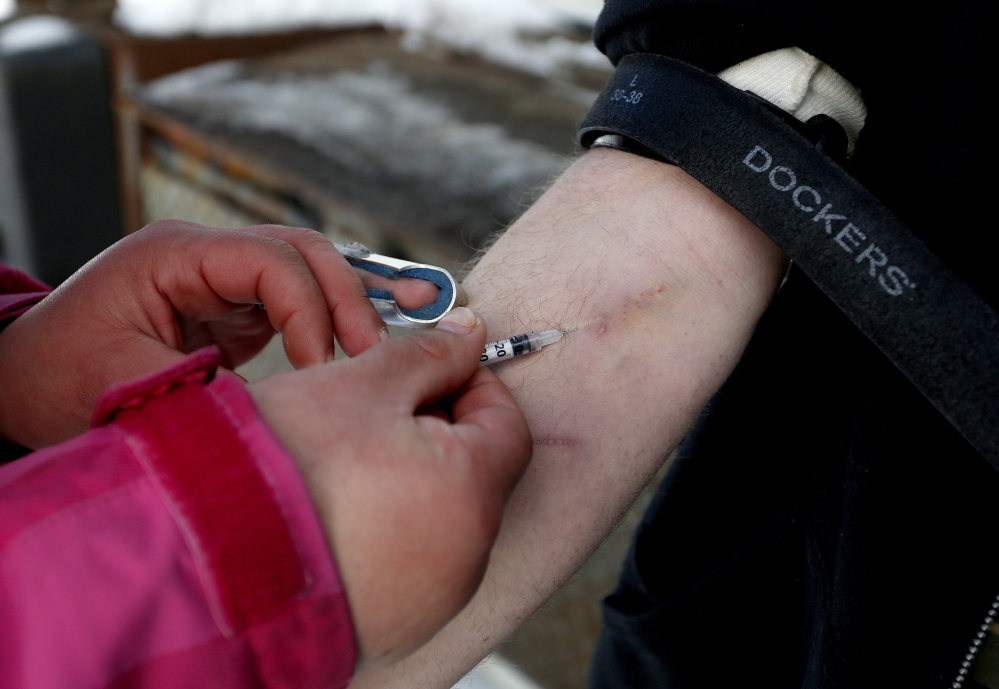Gov. LePage has again made an impassioned plea for the resources Maine needs to fight drug addiction. Unfortunately, he’s not asking for nearly enough.
LePage wants more police, prosecutors and judges to handle the drug cases that overburden the legal system.
That’s necessary, but there is still more to be done. The 40-year war on drugs has shown that you cannot arrest your way out of this problem. As long as there is a market for drugs, someone will be willing to service it. Arresting dealers can just make drugs temporarily scarce and more expensive, putting money in the pockets of their inevitable successors.
Gov. LePage’s fury over the number of “drug-addicted babies” is an example of the inadequacy of his approach.
If addiction is the compulsive use of drugs or alcohol, newborn babies can’t be addicted.
A baby can be born physically dependent on a substance like cocaine or heroin, but in a short time, he or she will go through withdrawal and lose the habit. Long-term studies have shown that, all things being equal, babies born with a dependence on drugs like crack aren’t any more likely than their peers to develop lifelong learning or health defects.
The problem is not drug-addicted babies but drug-addicted mothers. They are less likely to provide a safe, stable home, good nutrition or adequate supervision. Abuse and neglect over the course of a childhood will cause lifelong problems.
So, yes, the state should go after the dealers, but we should also do more to turn around the lives of mothers who are so far gone they continue to use hard drugs while they are pregnant.
That calls for treatment: the kinds of programs that have been eliminated and curtailed under the LePage administration. But drug treatment is not enough, either. Many drug problems start with undiagnosed and untreated mental health conditions like anxiety or depression. People with no access to health care may end up drowning their sorrows in drugs and alcohol, wreaking havoc on their lives and the lives of their children.
Improving community mental health care is also an anti-drug strategy. So is expanding MaineCare, so poor adults, including future mothers, are able to see doctors. So is fully funding education programs aimed at stopping teenagers from using substances at the age when they are most likely to become addicted.
The governor chastises the Legislature for being weak on drugs, but he needs to be stronger himself. This is not a simple problem, and a one-dimensional solution will not work.
Send questions/comments to the editors.



Success. Please wait for the page to reload. If the page does not reload within 5 seconds, please refresh the page.
Enter your email and password to access comments.
Hi, to comment on stories you must . This profile is in addition to your subscription and website login.
Already have a commenting profile? .
Invalid username/password.
Please check your email to confirm and complete your registration.
Only subscribers are eligible to post comments. Please subscribe or login first for digital access. Here’s why.
Use the form below to reset your password. When you've submitted your account email, we will send an email with a reset code.